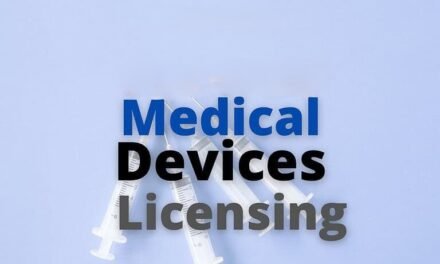
Department of Medical Science & Technology launched by IIT Madras and the Aim of the new initiative is to equip scientists and engineers with the necessary skills to develop advanced medical research

The Department of Medical Science & Technology at IIT Madras has been launched as part of a new initiative aimed at fostering innovation in the medical field by leveraging engineering and technology. This initiative is designed to equip scientists, engineers, and researchers with the necessary skills to develop advanced solutions for the medical and healthcare sectors, facilitating cutting-edge medical research and development (R&D).
Objectives of the Department of Medical Science & Technology at IIT Madras:
- Interdisciplinary Research:
The Department aims to create an interdisciplinary environment where scientists, engineers, and healthcare professionals collaborate to develop novel solutions for medical challenges. The focus is on combining the expertise of engineering, technology, and medical sciences to solve real-world healthcare problems, especially in areas where technological innovation can make a significant impact. - Training and Skill Development:
One of the key goals of this initiative is to train the next generation of scientists and engineers with specialized skills in medical technology. The department offers programs and courses designed to enhance knowledge in areas such as:- Medical device design and development
- Biomedical engineering
- Medical imaging
- Biotechnology applications in healthcare
- Artificial Intelligence (AI) and machine learning (ML) in healthcare
- Nanotechnology for medical applications
- Promotion of Advanced Medical Research:
IIT Madras aims to become a leader in medical research by integrating advanced technological methods, such as AI, robotics, and bioengineering, with medical science. Research will focus on developing new treatments, diagnostic tools, and medical devices that can improve healthcare delivery in India and globally. - Innovation in Medical Devices and Technologies:
The department will play a central role in medical device innovation. By combining the expertise of engineers and medical researchers, the department seeks to create affordable, effective, and cutting-edge medical technologies. Some of the focus areas include:- Wearable health devices for continuous monitoring of health parameters
- Point-of-care diagnostics to make healthcare more accessible in rural and underserved areas
- Robotic surgery systems and AI-powered clinical decision support tools
- Advanced prosthetics and implants
- Collaboration with Industry and Healthcare Providers:
IIT Madras is collaborating with healthcare providers, government bodies, and the private sector to bring the fruits of its research to the market. The department encourages partnerships with both Indian and international medical companies to facilitate the development, testing, and commercialization of new healthcare solutions. It also seeks to work with hospitals and clinics to test and refine technologies in real-world settings. - Focus on Affordable Healthcare Solutions:
A significant part of the initiative is to focus on creating cost-effective medical technologies that can improve healthcare access in developing countries like India. The department aims to develop technologies that are affordable yet highly effective in improving diagnosis, treatment, and patient care. This will be crucial in addressing the healthcare needs of India’s large and diverse population, particularly in rural and remote areas. - Incorporation of Artificial Intelligence and Data Science:
The department aims to integrate AI and data science into the healthcare ecosystem. By utilizing big data from medical records, imaging technologies, and wearable devices, IIT Madras is looking to develop new diagnostic algorithms, predictive models, and personalized treatment plans. AI-powered tools will help improve healthcare outcomes by providing faster, more accurate diagnoses and enabling real-time monitoring of patients’ health. - Promoting Healthcare in Rural India:
Given the challenges faced by rural India in terms of healthcare infrastructure and access to quality medical services, the department will focus on developing solutions that address these issues. This could involve:- Telemedicine systems to provide remote consultations
- Low-cost diagnostic devices that can be used by local health workers
- Mobile health applications for monitoring and tracking health conditions in rural populations
- Encouraging Startups and Entrepreneurship in MedTech:
The department will also act as a startup incubator for medtech entrepreneurs, fostering the creation of new medical technology companies. IIT Madras has a track record of supporting entrepreneurship, and this initiative will further promote the commercialization of medical innovations, contributing to the growth of India’s medical technology industry. - Global Impact:
While the department will focus on local healthcare needs, there is also a broader global ambition. By developing technologies that are scalable, the department aims to contribute to solving global healthcare challenges. India’s expertise in affordable healthcare solutions could position the country as a leader in low-cost, high-quality medical innovations suitable for developing nations.
Potential Areas of Focus for Medical Science & Technology Department:
- Medical Imaging and Diagnostics Advanced imaging technologies, including MRI, CT scans, and ultrasound, are essential for accurate diagnosis. IIT Madras aims to develop low-cost imaging solutions using cutting-edge technologies like AI and machine learning to assist healthcare providers in diagnosing conditions faster and more accurately.
- Regenerative Medicine and Tissue Engineering Another key focus area could be regenerative medicine, including the development of artificial organs and the use of stem cells for treatment. The department may also explore 3D bioprinting for tissue regeneration and personalized implants.
- Wearables and Remote Patient Monitoring Wearable devices for continuous monitoring of vital signs such as blood pressure, glucose levels, and heart rate are critical for managing chronic diseases like diabetes and hypertension. The department could work on developing smart wearables and integrating them with AI-based platforms for predictive analytics and remote patient monitoring.
- Robotics and Minimally Invasive Surgery Robotics is transforming the field of surgery with applications in minimally invasive procedures. IIT Madras is likely to explore the development of robot-assisted surgery systems, improving precision, reducing recovery time, and enhancing the overall quality of care.
- Point-of-Care Diagnostics and Mobile Health Applications The development of point-of-care diagnostic tools that can provide results in real time is a critical need in India, especially in rural or resource-constrained settings. The department may work on mobile health solutions that leverage smartphone technology for diagnostic purposes, making healthcare more accessible and affordable.
- AI for Personalized Medicine AI can be used to analyze large amounts of medical data and design personalized treatment plans for patients. By developing AI algorithms that predict disease progression and recommend tailored therapies, the department can support more precise and effective healthcare delivery.




























